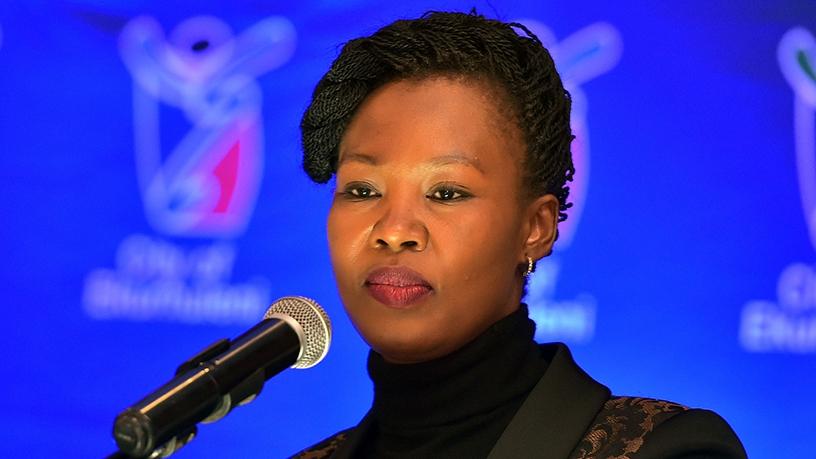
Government has committed to train a million young people between 2019 and 2030 to become data scientists.
This is the word from Stella Ndabeni-Abrahams, deputy minister in the Department of Telecommunications and Postal Services (DTPS).
As the demand for data scientists within the business and research fields grows exponentially, SA is under immense pressure to address this skills gap. Globally, the shortfall for data scientists is projected to be between five million and 10 million.
Furthermore, key projects such as the Square Kilometre Array and MeerKAT require these skills to interpret and analyse the vast amount of data that will be produced by the radio telescopes.
Ndabeni-Abrahams says government has a responsibility to provide people with skills that will ensure they can participate meaningfully in the fourth industrial revolution.
"We want to produce people with skills, people who have knowledge and can find solutions to the challenges we are facing. Ours is to build a knowledge-based society, which is why we are training one million people," she says.
Explaining what the DTPS has done so far, the deputy minister says it has visited Silicon Valley to learn crucial skills and is establishing partnerships with key ICT industry players to ensure the initiative is a success.
"We are in the process to make sure that we bring our own Silicon Valley here, to give South Africans an opportunity to develop their skills. In October, we will be meeting with the relevant stakeholders in the ICT field."
Argon Poorun, research analyst at Frost & Sullivan, notes organisations across multiple industries are increasingly realising the competitive value of advanced analytics.
In SA, the supply of talent that can perform advanced analytics is not keeping up with the demand, Poorun says. "Exacerbating factors to the shortage include a low supply of matriculants with maths and science; more lucrative career paths such as banking, engineering, mining, actuaries detracting from the talent pool; a bias in IT-related training towards male students; and job market distortions that have created challenging barriers to entry for certain race groups."
Unrealistic targets?
Moira de Roche, independent learning specialist and director of the Institute of IT Professionals SA, questions where the department is going to find these young people.
Unlike other professions, De Roche says, one can't just churn out data scientists; instead they need some specialist skills which are only built by experience of about five to eight years.
She explains that even if the education system produced sufficient candidates, not just anybody has the required qualities. "I think someone has picked a number out of the sky. If you divide 1 000 000 by 12 years, that is 83 333 per year. I wonder if one million data scientists will be trained in this period in the entire world.
"With programming or coding, all that is required is logic ability. To be a data scientist you need analytical skills, and an ability to envision what outcomes might be achieved with, for example, data modelling. An understanding of architecture is essential. And then there is the added requirement to be conversant with new technologies like machine learning."
To achieve its target, De Roche advises that the DTPS would need to consult even more widely than it already has and come up with a plan. This, she says, starts with getting graduates with the right skills sets, and then forming a long-term plan for how they will develop the right experience.
"It needs a serious long-term project which is staffed by people who understand career development. Finally, they have to accept that this target is unrealistic, and revise the target to something more achievable."
Poorun believes the telecoms ministry will have to develop and fund training programmes to help young South Africans develop the necessary skills.
"These programmes should involve a mix of theoretical and project-based learning. There is lucrative potential in creating these programmes in collaboration with the industry's stakeholders who have an increasing demand for these skills. As demand increases, and the data analyst career path becomes more viable or lucrative, there will be a flux of individuals from other sectors which will provide a large talent pool for in-house training programmes."
Tough task ahead
Shaun Dippnall, CEO of Explore Data Science Academy (EDSA), says aiming to train a million young people is a great idea but it will be tough.
For our economy to thrive and survive, we need to be producing data scientists locally because the businesses of the future are around artificial intelligence and using data to make decisions, he says.
"It will be tough to get a million; even getting a hundred-thousand is tough. Data science is difficult and tricky; it's not like everybody can wake up and become a data scientist."
Founded by Dippnall and his partners, EDSA launched in Cape Town earlier this year and is one of the first institutions in the country focused on data science, and aims to produce data scientists at scale.
According to Dippnall, data scientists typically come through universities, and these institutions are quite exclusive with lots of barriers to entry. South Africa's universities are producing between 100 and 200 data scientists a year.
There are plans to launch another EDSA campus in Gauteng next year that will be able to accommodate 400 students and then eventually 1 000, states Dippnall. "I think we will be the biggest supplier of data scientists in the country, but a thousand a year is a long way from a million."
Share